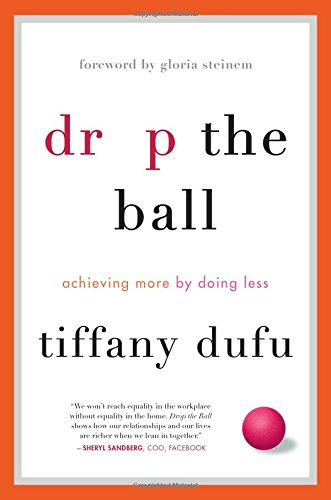It's Okay to Drop the Ball

For the busy female cardiologist (or Fellow in Training), Tiffany Dufu's book Drop the Ball is a paradigm-shifting guide to achieving success at both work and home. Her message is clear throughout the book: the way to get ahead is to let go.
Dufu describes how many professional women work two full-time jobs: their career and their responsibilities at home. She explains that for women to succeed in the workplace, they need to shift the balance of domestic responsibility. Her book is one step in correcting the imbalance by helping women prioritize and manage time at work while reducing their responsibilities at home.
In the introduction, Dufu describes the book as a product of years of women asking her for details of how she balances her career and family. The book narrates her personal work-life balance with specifics, such as how she delegates tasks at work and home, fits in exercise, finds childcare, and uses her guiding-life principles to navigate professional and personal challenges.
At first, Dufu's victories at delegating tasks appear dependent on her saintly husband and devoted circle of friends. However, over the course of several chapters, it is clear that anyone can engage their own friends and family to promote success at home and work. Dufu rightly recognizes that the conventional advice for working women to pay to outsource domestic tasks is not feasible for many American families. Instead, she describes how to engage "All-In Partners" and includes realistic alternatives to ensure meals are cooked and laundry is cleaned, without a woman having to do everything herself.

Throughout the book, Dufu refers to a condition that she terms "Home Control Disease," which is described as the compulsion that some women feel to control every aspect of managing their home. Part of "dropping the ball" requires relinquishing control over details. She admits that recovery from "Home Control Disease" was slow, anxiety-provoking and fraught with relapse, but she also shows how even when she "drops the ball" at home, someone is usually able to pick it up. Dufu preaches that producing Pinterest-inspired petit fours will not promote a woman's professional and personal goals – store-bought cookies can usually suffice!
Dufu's prose is relatable, bright and energizing. She is also honest, which makes the book read as though she is a good friend giving advice over coffee. Drop the Ball has already found its way on my bookshelf, and I plan to return to it regularly as a reminder that it is okay to "drop the ball."
Want to carry on this discussion even further? Connect with colleagues and share your thoughts on ACC's Member Hub!
This article was authored by Caroline Ball, MD, Fellow in Training (FIT) at the Loyola University Chicago in Chicago, IL.